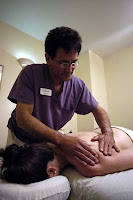Sometimes it seems like the only kind of news I bring you is bad news. So, today we’re shifting our focus to a couple of pieces of VERY good news. Grab a cup of coffee — you’ll see why in a second — and get to reading!
Sometimes it seems like the only news I write about is bad news. So, today we’re shifting our focus to a couple of pieces of VERY good news.
Grab a cup of coffee — especially you men — and read on.
The first piece of good news comes from a study published in the journal Diabetic Medicine. Researchers in Hong Kong have added another item to the list of reasons you should be getting plenty of omega-3s, and this one is especially good news for diabetics.
Because it turns out that those wonderful fatty acids may actually improve your kidney health if you have diabetes. People who supplemented with omega-3s saw a big drop in creatinine levels in their blood, a common measure of kidney damage.
In the 12-week study, participants received either 4 grams per day of fish oil or a placebo—olive oil. (Side note: When’s the last time you saw the contents of a placebo disclosed by a Big Pharma drug study?)
At the end of the study, those who had taken fish oil had significantly lower creatinine levels than those who had been taking olive oil. So there’s one more reason to keep taking that fish oil — as if you really needed another one!
The second piece of good news gets us back to that cup of coffee. Men, this is particularly welcome news for you. Especially if you can’t get through the day without several cups of Joe.
Recently, a 20-year study involving 50,000 men showed that coffee-drinkers are at a lower risk for prostate cancer.
And the more coffee you drink, the lower the risk…For men who drank the most coffee (six or more cups a day), the risk fell a whopping 60%. Even men who drank only one to three cups per day had a 20% lower risk.
Now, what if you’re a decaf drinker? That doesn’t seem to matter — guys who drank decaffeinated coffee saw the same benefits. Researchers say that coffee impacts insulin, glucose metabolism, and sex hormones — all of which play a role in the development of prostate cancer.
They want to do more research to determine what component of coffee gives this protection, but in the meantime you can harness the benefits with a hot, steaming cup of coffee every morning.
This article from Dr. Jonathan V. Wrigth, MD website www.wrightnewsletter.com
Sources:
“Be a Java Junkie: New Study Reveals Coffee May Prevent Deadly Prostate Cancer,” Alternative Health Journal (www.insidershealth.com)
“Omega-3 may boost kidney health in diabetics: Study,” NutraIngredients (www.nutraingredients-usa.com)





